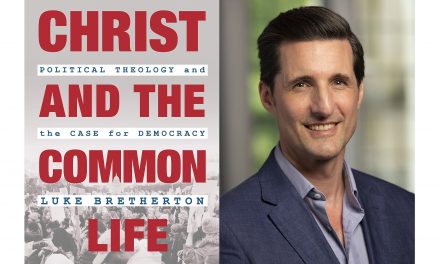Given a public health crisis that makes gathering in a closed space for an hour dangerous, particularly for anyone who is more at risk from COVID-19, how will the Church teach about and practice its call to gathered worship, to gratitude for Christ’s self-offering in the Eucharist?
A response published May 18 by bishops in Quebec should be required reading for anyone interested in the long-running discussions about how to frame the relationship “between” ethics and liturgy. In fact, they offer a case study for how our worship is itself already a public, prudential discernment about how to live in charity, how to do justice.
Because the letter is published in French, I am offering translations of a few paragraphs here. I took these, with very few corrections, from the Google translation of the page. My own French is far from perfect, so if you see errors, please send in corrections!
The title “Nos églises n’ouvriront pas tout de suite. Pourquoi?” or “Our Churches will not open right away. Why?”
Since the start of the pandemic, the bishops have fundamentally acted out of pastoral charity by suspending all community liturgical celebrations and by closing places of worship as soon as a state of health emergency has been declared. The duty of Christian charity, which is the first obligation of every baptized person, was and continues to be that of caring for one another by preventing the spread of the coronavirus. This is the best way at present to put into practice the great commandment of Love. By pastoral charity, we collaborate with public health authorities in order to reduce the deadly risks of this pandemic. We must not forget that many of the participants in our gatherings are among the most vulnerable.
They continue, noting a particular confusion characteristic of consumer cultures.
It is risky to compare ourselves with the few shops and supermarkets that are allowed to open by allowing a small number of customers to enter at the same time and by requiring them to respect various hygienic conditions. Our ecclesial life is based on gathering, meeting, participation, dialogue and exchange. We are not a service provider, where each and everyone comes to seek the object of their desire for their personal satisfaction or the good corresponding to their immediate need.
The bishops describe the risks of gathering, their care to protect older clergy, and their cooperation with public health orders for the sake of reducing the spread of disease. Then they return to the theme of the Christian calling in this moment.
Let us remember that the Lord is present every time we open the scriptures to meditate on his Word, whenever we take a moment to pray, whenever we help a brother or sister. He is really present with us, and all the more so when there are a few of us praying together, even from a distance. We use social media and traditional communication tools a lot (the good old phone) to maintain relationships between us, to stay in touch and to cultivate brotherhood. We can rejoice that so many parish communities remain active in creative and fruitful ways, despite the closing of the gathering places.
As they began noting that they are “receiving more and more insistent requests to reopen the churches of our dioceses so that the faithful can have access to the sacraments.” They mention also that they have had requests “to distribute the Eucharist outside the Eucharistic celebrations or … to entrust the Eucharistic Bread to fervent families who would keep it at home, to become ‘extraordinary ministers of communion’ for the benefit of those around them. They find such proposals unacceptable, and they call for the community to accept this limitation in imitation of many heroic Christian communities who have not been able to gather for Eucharist, even for years.
The Eucharistic assembly is the only place where we share the Body of Christ to become what we receive, except in the case of the communion brought to the sick or at the end of life, when the hygenic conditions allow us to practice this work of mercy.
The present circumstances are perhaps for us, Catholics of Quebec, a call to practice a certain heroism in the faith, as we have not had to live it since missionary times. Just a few months ago, a Synod on the Amazon revealed the heroism and faith of our brothers and sisters in these regions who keep their faith alive and active by celebrating the Eucharist only once or twice a year. year. We could learn a lot from the history of Catholic communities that have been deprived of priests and sacraments for years (Cambodia, South Korea), while preserving their faith and their relationship to Christ.
This, they assure believers, is a moment of grace.
No matter the circumstances of history, our God is never short of creativity to be close to us, as he shows in all places and at all times in human history. Your intimacy with the Lord and the ongoing dialogue you have with Him will help you through the ordeal until we are together again to sing the praises of God, Father, Son and Spirit.
After encouraging believers to work with their parishes to find creative ways to continue to build up the faith in mutual love until our longed-for day of sharing will come, they close with an inspiring call:
We invite you to remain patient, in the charity of Christ, and to live your heart in peace, accepting the limits that this new situation places on us, simply out of love for others. May the Spirit help us to transform this experience of deprivation into a manifestation of love for our brothers and sisters with whom we are united.



